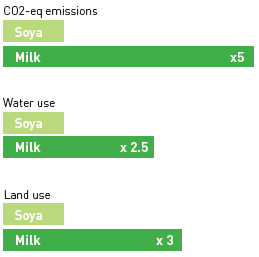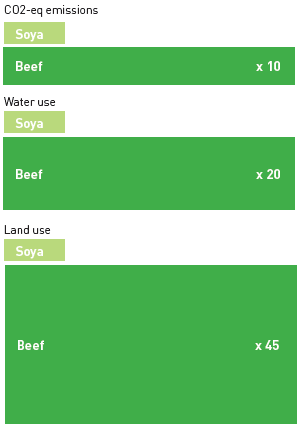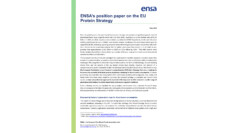The way we eat has a tremendous impact on our environment and the planet’s resources. As the global population grows, it is clear that our current, Western food patterns are not sustainable. Numerous scientific publications recommend incorporating more plant-based foods in our diets to reduce pressure on land and water, while limiting our green-house-gas emissions.
Smalls dietary changes, like switching to plant-based foods just once a week, can have a significant positive impact on the sustainability of our food systems.
Comparison of CO2-eq emissions, land and water use between soy drink and cow milk

Comparison of CO2-eq emissions, land and water use between soy meat alternatives and beef

ENSA’s position paper on the Packaging and Packaging Waste Regulation (PPWR) proposal
31 May 2023
ENSA welcomes the Commission’s Packaging and Packaging Waste Regulation (PPWR) proposal, which aims to revamp the EU packaging legislation by aligning it with the Green Deal’s objectives of halving the EU’s GHG emissions by 2030. ENSA’s…
ENSA’s position paper on the EU Protein Strategy
31 May 2023
Over the past few years, the plant-based food market in Europe has experienced significant growth. Sales of plant-based foods have surged by more than 21% since 2020, resulting in a current market value of € 5.8 billion[1]. In 2021 and…
ENSA calls for robust EU law to drive the transition to sustainable food production and consumption
31 May 2023
The European Plant-Based Foods Association (ENSA) is urging the European Commission to propose a robust law to enable the transition to a sustainable and healthy food system in the EU, in a statement released today alongside another 50+…


